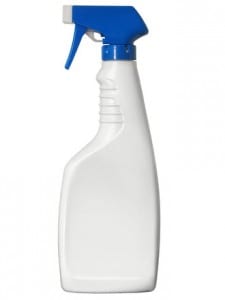Remember when our hands were dirty and we had to find a sink? Now we can reach for antibacterial soaps. And for a smudge or spill, we have bleach wipes at the ready. Our society has become obsessed with cleanliness, but is it paying off?
A Little Dirt May not Hurt
Contrary to popular belief, a super-clean and germ-free environment can increase our susceptibility to allergies, hives, eczema, hay fever, and asthma. Not the other way around. It’s a little theory floating around out there called the “Hygiene Hypothesis.”

Research shows that children who have several older siblings are much less likely to develop asthma or allergies. The likely theory is that big brother and sister brought germs home, exposing the younger siblings at an early age. Likewise, children that are allowed to crawl on floors are less likely to develop long-term health issues like asthma as opposed to children raised in hyper-clean environments or that were prohibited from crawling on “dirty” floors. The list goes on. Kids raised in homes without dishwashers have been shown to have less allergies than those with them. Also, kids raised on farms, where contact with soil, animals, and dirt is common, have less allergies.
Exposure to germs can help fortify the immune system which in return, protects us against allergies and asthma. Here’s how it works. The immune system is hardwired to fight off germs and bad bacteria. Allergies occur when the body starts seeing harmless elements-such as allergens-as bad germs. It then marshals all of its defenses against them, depleting the body while “fighting them off.” Sadly, this accomplishes nothing constructive but causes the body to develop symptoms like eczema, asthma, a runny or congested nose, eye conjunctivitis, and more. If the body gets more opportunity to learn to discern between good and bad elements in the environment, it is often better off. So before you reach for that disinfectant, think twice! Dirt may not be our biggest enemy.


